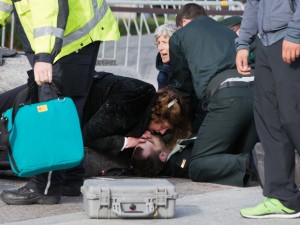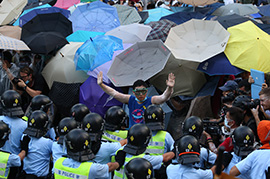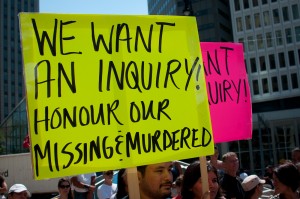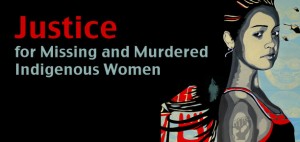“Terrorist” or a Criminal Act?
On the morning of Wednesday, October 22nd, the entire world set its eyes on the Canadian parliament attack. The story made headlines throughout the whole world and this was being seen as a terrorist attack on Canada. However, was it really a terrorist attack? According to my opinion, No.
An individual by the name of Micheal Zehalf-Bibeau open fired inside the Canadian Parliament, just a few feet away from the caucus room.

Nathan Cirillo’s death scene
http://news.nationalpost.com/2014/10/23/ottawa-lawyer-describes-the-surprisingly-calm-passionate-bystander-attempt-to-save-nathan-cirillos-life/
Corporal Nathan Cirillo, 24, became a victim of Bibeau’s shooting and despite many attempts to save his life, the soldier passed away at the scene. Acting towards the open firing, Sergent-at Arms, Kevin Vickers shot Bibeau dead.
As stated before, this event was given the label of a “terrorist attack” moments after it happened by the media, RCMP and government officials. That being said, even Mr. Harper, the Canadian Prime Minister, stated “We will learn more about the terrorist and any accomplices he may have had in the days to come”. With such labeling it became known and believable throughout the world, that this was in fact a “terrorist attack”.
However, my argument is, how can you simply throw out the world “terrorist” just moments after the event without any investigation or verification? In fact, just a few days after this event, various psychiatric reports started to appear regarding the personal history of Bibeau. Bibeau was arrested in 2011 for a robbery in Vancouver and he told the judge:
“I went to see the RCMP, I told them, ‘just put me in so I could do my time for what I confessed.’ They couldn’t. So, I warned them, ‘if you can’t keep me in, I’m going to do something right now just to be put in.’ so I went to do another robbery just so I could come to jail…. I wanted to come to jail so I could clean up”.
In fact reports also say that Bibeau wanted to go to jail and stay there to lose his addiction for crack cocaine. All of this evidence shows that this man in fact needed help.
Mr. Mulcair, the Leader of Opposition, issued out a statement saying that
“I think we are not in the presence of a terrorist act in the sense that we would understand it and I think we have to be very careful with the use of the word terrorism, make sure that’s actually what we are dealing with.”
I agree with Mr. Mulcair as Bibeau’s life history shows that the individual committed a criminal act but not a terrorist attack.

Michael Zehaf-Bibeau
http://www.ctvnews.ca/canada/ottawa-shooting-suspect-michael-zehaf-bibeau-had-very-developed-criminality-1.2067255
According to my opinion, Bibeau did not have any terrorist motivations and there has not been any evidence to support his relationship with any terrorist organization. Another interesting thing to note here in my opinion is the use of the word terrorist for this event. As mentioned earlier, the word was used right after the event without much verification/investigation. But was this because the act was committed by a Muslim man? I say this because terrorism has been stereotypically/wrongly associated with people of this faith after 9/11.
To conclude, this sad and shocking event was mislabeled to be a “terrorist event” without any investigation, in my opinion. The word “terrorist” is a very big word and cannot just be thrown out like that without full verification. Rather, this event in my opinion was a criminal act committed by a person who needed help and rehab.




